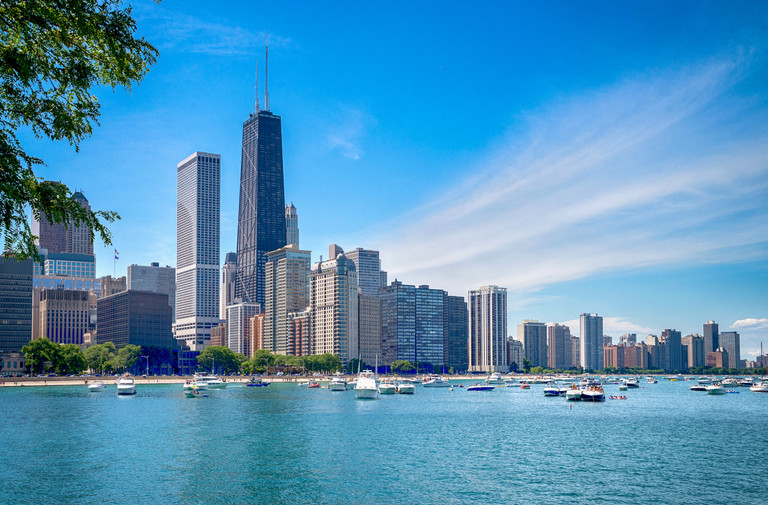Springfield, Illinois – August 28, 2025, A class-action lawsuit challenging the constitutionality of Illinois’ automated speed enforcement camera programs was dismissed by a state appellate court on August 27, marking another setback for motorists seeking refunds on millions of dollars in fines. The Illinois First District Appellate Court upheld a lower court’s ruling that the programs, which allow municipalities like Chicago to issue tickets via cameras for speeding and red-light violations, are legal under state law. The decision, which could have sweeping implications for similar systems across the state, has drawn sharp criticism from plaintiffs’ attorneys who argue it ignores due process concerns and perpetuates a revenue-driven scheme.
The lawsuit, filed in 2022 by a group of Chicago-area drivers led by plaintiff Terie Kata, contended that the Illinois Enabling Act—passed in 2006 and amended in 2013—unconstitutionally delegates traffic enforcement powers to local governments in a way that violates the state constitution’s prohibition on “special legislation.” The plaintiffs claimed the law creates unequal treatment by allowing only certain counties near Chicago and St. Louis to implement automated enforcement, effectively turning moving violations into civil infractions without adequate safeguards. This, they argued, strips drivers of their right to a fair hearing and allows cities to profit excessively from fines, with Chicago alone generating over $500 million since the program’s inception in 2003.
In a unanimous opinion authored by Justice David Overstreet, the three-judge panel affirmed Cook County Circuit Judge Rita M. Novak’s 2023 dismissal of the case. The court reasoned that the Enabling Act is not “special legislation” because it addresses legitimate regional differences in traffic enforcement needs, such as urban congestion in the Chicago metro area. “The statute applies uniformly to all municipalities in the designated counties that choose to implement automated enforcement,” the ruling stated, rejecting claims that the program encroaches on state authority over traffic laws. The justices also noted that the ordinance’s validity does not hinge on the Enabling Act, as Chicago’s initial 2003 ordinance was retroactively validated by the 2006 law.
Attorney Patrick T. Keating, representing the plaintiffs from the firm Roberts McGivney Zagotta LLC, expressed disappointment but vowed to explore further appeals, potentially to the Illinois Supreme Court. “This decision perpetuates a flawed system that prioritizes revenue over public safety and due process,” Keating said in a statement. “We’ve seen audits reveal no safety benefits, yet cities continue to rake in millions. Our clients deserve their day in court.” The suit sought to invalidate billions in fines and declare the program unconstitutional, echoing earlier challenges like the 2017 $38.75 million settlement in a related red-light camera case where the city admitted to due process violations in over 1.2 million tickets.
Chicago’s automated enforcement system, which includes over 350 red-light cameras and 50 speed cameras, has long been controversial. A 2013 audit by the city’s Office of the Inspector General found no evidence that camera placements were based on safety data, suggesting they were positioned to maximize revenue. Studies, including one from Case Western Reserve University, have questioned the programs’ effectiveness in reducing accidents, with some research indicating they may even increase rear-end collisions. Despite this, the city maintains the cameras enhance safety, citing a drop in T-bone crashes at intersections. In 2024, the program generated $54 million, funding road repairs and school safety initiatives, according to city officials.
The appellate ruling aligns with a history of judicial support for such programs in Illinois. In 2018, the same court upheld the dismissal of a similar challenge to Chicago’s red-light and speed camera ordinances, affirming that the Enabling Act is “rational” and does not violate equal protection principles. Nationally, red-light and speed camera programs have faced mixed outcomes: Texas banned them in 2019, while California upheld their use in a 2022 Supreme Court decision, ruling that camera evidence is not hearsay. In Florida, a 2022 state Supreme Court decision rejected a challenge to credit-card fees on camera fines, but earlier appellate rulings have limited private vendors’ roles in enforcement.
Critics, including the Illinois Policy Institute, argue the programs disproportionately affect low-income and minority communities, with fines acting as a regressive tax. “This isn’t about safety; it’s about squeezing drivers for cash,” said policy analyst Orphe Divounguy. Supporters, like Chicago Alderman Brendan Reilly, counter that the cameras save lives, pointing to a 42% reduction in red-light violations in early studies from Oxnard, California.
As the plaintiffs weigh their next steps, the decision reinforces the legality of automated enforcement in Illinois, potentially shielding municipalities from similar suits. For drivers facing tickets, options remain limited to individual challenges through administrative hearings or traffic court, though exhaustion of remedies is required before filing broader claims. The case, Kata v. City of Chicago, underscores the ongoing tension between technological enforcement and civil liberties in the digital age.
